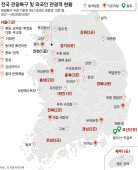[Opinion] Buffett Syndrome
Berkshire Hathaway CEO Warren Buffett, a master of value investing, visited Korea as just an investor and spent only six hours here. However, during his stay, he was treated almost like a state guest.
He was indeed a man of simple tastes and frugality. Although he is a billionaire, he personally picked up his luggage from the airport and had a hamburger and Coca-cola for lunch. When asked, How much do you have in your pocket right now? he took out 600 dollars right away and counted them.
Buffetts visit even moved stock prices in Korea. When he said, I once invested in Kia Motors, the companys stock prices hit a six-year high and the KOSPI and KOSDAQ went up 94.70 points, or 4.90 percent, and 17.27 points, or 2.21 percent, respectively. The market capitalization of securities and the KOSDAQ soared by 49.873 trillion won to 1120.088 trillion won. The KOSPI index again reached 2,000 points despite many difficulties, including high oil prices, which is, according to many experts, attributable to Buffetts optimistic view of the Korean stock market. Indeed, he said, The Korean stock market is likely to perform as well as any other market over the next 10 years.
The investment guru says he loves Korea, but the Korean people cherish him just as much, if not more. Almost 30 books about Buffett have been published in Korea, and his autobiography is available in cartoons. Underlying Koreans affection for him is his respect for rich and wise men. Maybe it is the byproduct of an inferiority complex that there are no respected rich men in Korea. However, the similarity between wealthy people both in the U.S. and Korea is that they are sincere and diligent. Wealthy people help others by creating jobs and providing incomes. Equally impressive stories are also hidden in the successes of Korean entrepreneurs, and they are just remarkable as Buffetts.
In Korea, many rich men spend their money for good purposes, just as Buffett does. So instead of criticizing wealthy people for not making enough donations, we have to put in place a system which makes inheriting fortunes not as lucrative. Koreans sometimes tend to underestimate themselves and then make a big fuss over the words of others, especially when the others are foreigners. Koreans dont have to only look up rich people in other countries. Even without Buffetts word, Korea is already a globally recognized economic power with well-known global companies.
Heo Mun-myeong, Editorial Writer, angelhuh@donga.com
Headline News
- N. Korea redefines S. Korea as ‘hostile state’ in revised constitution
- Samsung develops graphic DRAM with industry-leading capacity and speed
- Three questions allegedly leaked via text message during Yonsei Univ. essay test
- China to inject 340 trillion won in loans to support real estate sector
- Dodgers beat Mets to take 2-1 lead in NLCS







